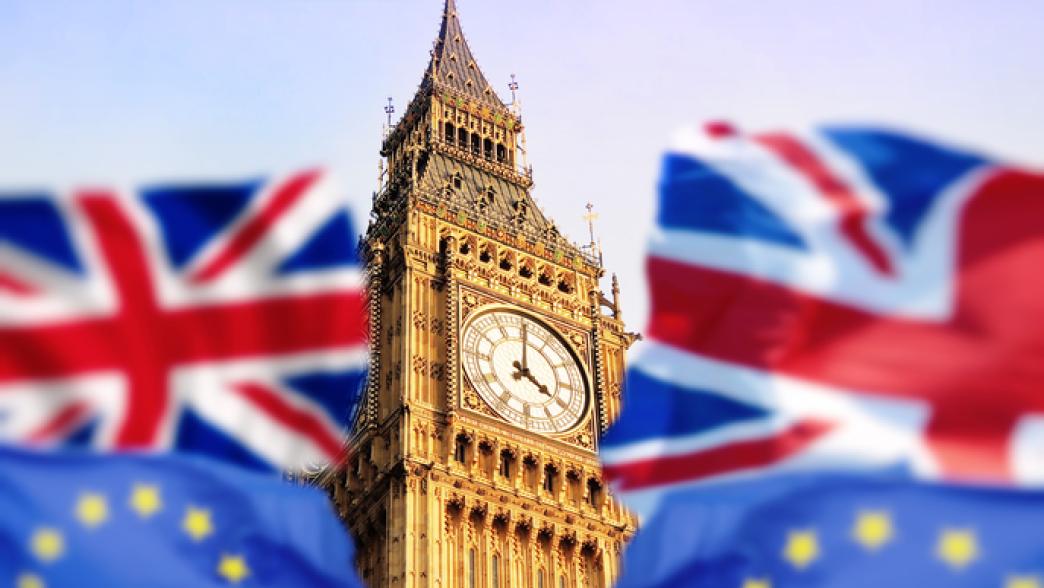
Bronwen Maddox says the election result means there will be pressure for a much “softer” version of Brexit.
This was billed as the Brexit election, even though neither Conservatives nor Labour offered many credible details of their plans for one of the biggest challenges facing the UK in 50 years. Nor did Brexit feature loudly in public debate; polls suggested that many who had voted Remain seemed grudgingly to accept that exit from the European Union (EU) would happen and the question was only how to do it well.
Yet for all the silence on the campaign trail, the election result profoundly affects the politics of Brexit, within the UK and the European Union. Theresa May called the election to get a strengthened mandate to conduct the talks as she thought best; her failure to secure that throws the start of the talks into doubt and will increase the pressure on her for a “soft” exit, retaining many links with the EU. At this point, however, the result seems unlikely to prompt a new referendum and an entire halt to Brexit itself.
Some of Labour’s success may represent anger about Brexit.
Two groups of people who overwhelmingly supported Remain – Londoners and students – also voted heavily for Jeremy Corbyn in this election. While we wait for closer analysis of how people voted and why, it is plausible to take these votes partly as a rejection of Theresa May’s vision of Britain’s relations to Europe and the world: her hostility to net immigration higher than "tens of thousands a year" and to the sense that Britain needed to welcome the world to its shores in order to retain its place in the world as well as its economic growth.
But it is not that simple. Labour also picked up big chunks of the collapsing UKIP vote across the country, which broke almost evenly for Labour and Conservative in many seats. For many of these voters, dislike of immigration is the issue by which they define themselves above all others.
On its own, then, the public vote does not add to pressure on Theresa May to change her stance on Brexit – but the new leverage of the smaller parties in Parliament after this election is a different matter.
There will be pressure for a softer Brexit.
The election result now exposes Theresa May (or whoever is leading the Conservative Party) to parliamentary pressure for a “softer” version of Brexit than the one she outlined in committing Britain to leaving the Single Market and Customs Union. The Democratic Unionist Party (DUP), on the face of it the easiest parliamentary partner for the Conservatives, has consistently said that “no one wants a hard Brexit”. While repeating a commitment to the UK’s exit from the EU, Arlene Foster, the DUP leader, has called for the UK to retain as many of the benefits of the Single Market as possible, and to avoid a hard border with the Republic of Ireland (see Jill Rutter's analysis of the DUP's position on Brexit).
The Lib Dems campaigned on calling for Britain to remain in the EU and would push for retention of as close a continuing relationship as possible in return for parliamentary support.
Labour, despite indulging itself in its manifesto in plenty of “have your cake and eat it” statements (such as wanting to keep the benefits of the Single Market but control immigration), made clear it wanted a much closer relationship with the EU than did Theresa May and will seek to build support for that position. It called for continued membership of shared regulatory bodies such as Euratom and said that it would not contemplate walking out of talks – the “no deal” option.
The Conservative Government’s need for support in Parliament means that it will be under pressure to soften its stance in negotiations. To that parliamentary chorus we can add pressure from business leaders. Many have been frustrated by patchy contact with No. 10 and the departments preparing for Brexit, are also immensely alarmed by the Prime Minister’s determination to curb net immigration to “tens of thousands a year”. That would, they believe, deprive them of the skills they need.
But there do not seem circumstances at this point likely to halt Brexit altogether. That is, crucially, not Labour’s position in its manifesto, nor has Jeremy Corbyn traditionally been any great fan of Europe.
Can the Brexit talks go ahead?
The talks with the EU’s negotiating team are due to begin on 19 June. But obstacles have now appeared.
- Theresa May is immensely weakened in her position as Prime Minister and as the EU’s negotiating counterpart. Despite her firm, immediate declaration that she was not resigning, her position remains in question.
- She called the general election to “get a mandate for Brexit”; she failed. Her government’s position on Brexit will now have to be negotiated with other parties, notably the DUP.
- Theresa May still has to demonstrate that her government has the confidence of Parliament and can pass bills. Unless it does so, the possibility of another general election within months remains.